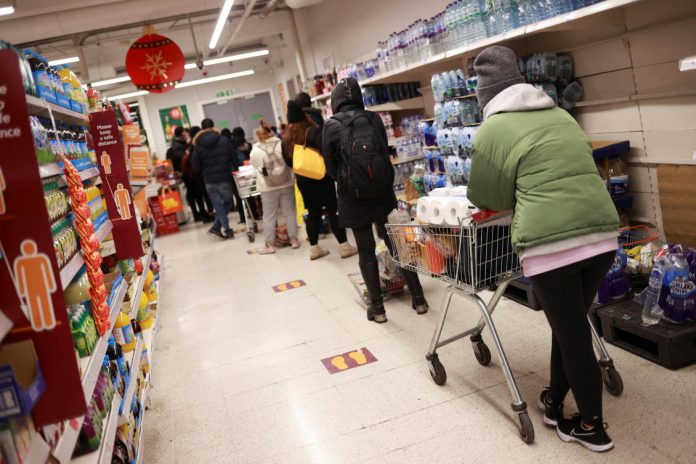LONDON: Britain’s economic recovery from its coronavirus crash was a bit quicker than previously thought in the July-September period, according to official data which also showed government borrowing soaring to pay for the coronavirus crisis.
Gross domestic product grew by a record 16.0 percent in the third quarter – revised up from a previous estimate of 15.5 percent – but that still did not make up for its 18.8 percent slump in the April-June period when much of the economy was shut down.
The Office for National Statistics also said Britain borrowed a record £241 billion ($323 billion) in the first eight months of the financial year, nearly £190 billion more than in the same period a year earlier.
The country’s budget forecasters think the deficit will hit almost £400 billion in the 2020/21 year, close to 20 percent of GDP or double the hit from the global financial crisis.
Public debt stood at almost £2.1 trillion or 99.5 percent of annual economic output, the highest debt-to-GDP ratio since 1962, the ONS said.
Finance minister Rishi Sunak reiterated his pledge to tackle the huge shortfall, but not immediately.
“When our economy recovers, it’s right that we take the necessary steps to put the public finances on a more sustainable footing so we are able to respond to future crises in the way we have done this year,” he said in a statement.

British GDP growth slows to six-month low as COVID-19 hits hospitalityUK economy faces long climb back to health

